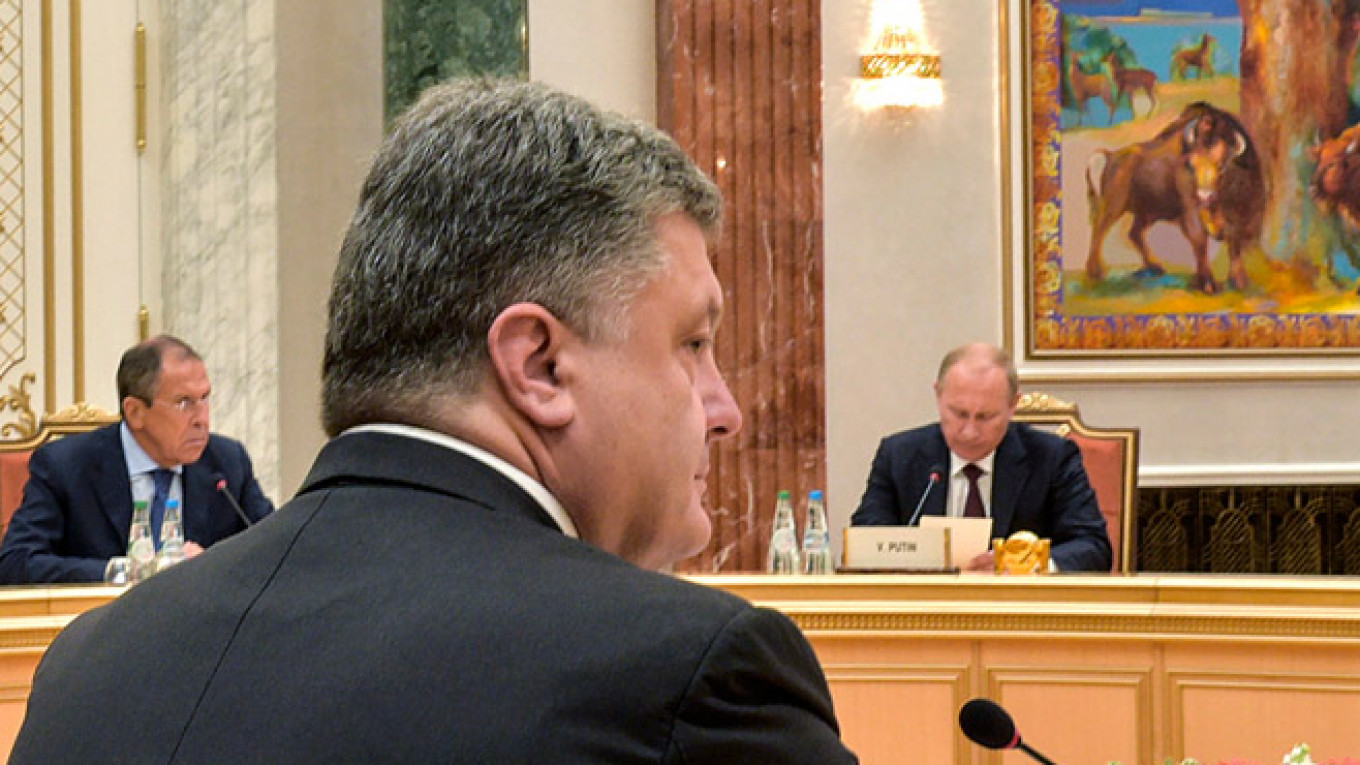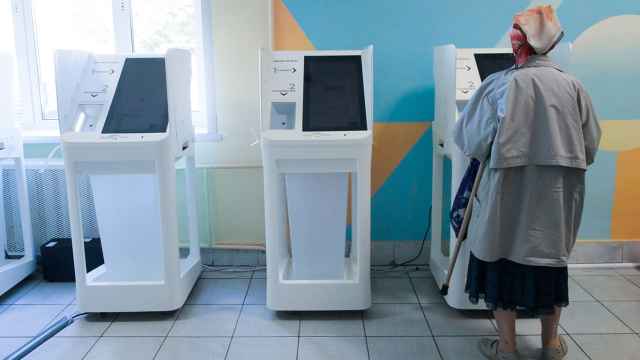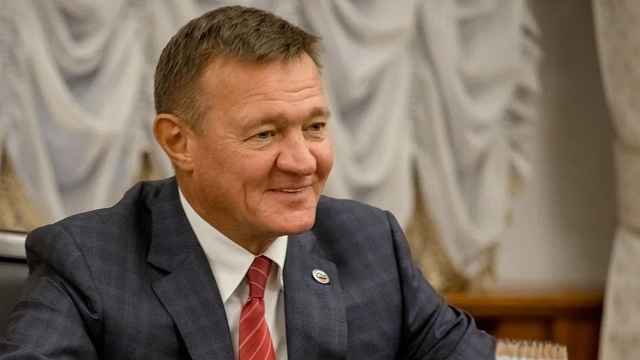Friday Sept. 5 marked the start of a new era of division in Europe. The NATO summit in Wales declared that for the first time since the end of the Cold War, Russia is at the center of the alliance's concerns about Europe's security.
The same day, representatives of the OSCE, Ukraine and Russia signed a protocol to initiate a cease-fire in eastern Ukraine as part of a process toward a settlement of the conflict agreed earlier by President Vladimir Putin and Ukrainian President Petro Poroshenko. The agreement codifies division within Ukraine based on the adoption of a law on special status that cedes "temporary" powers of self-government to Donetsk and Luhansk.
In Nagorno-Karabkh, the self-proclaimed republic of Transdnestr, Abkhazia and South Ossetia, Russia has used a similar tactic of supporting "protracted" conflicts as a way of pursuing its interests.
Russia may have tilted the military situation in its favor in Ukraine's east, but seen in a broader strategic context, Moscow's tactical success in "freezing" the conflict looks highly disadvantageous for Russia over the medium to long term for several reasons.
First, Russia's aggression against Ukraine has alienated the greater part of Ukrainian society and destroyed its soft power potential for keeping Ukraine in a friendly embrace.
Second, Russia's actions are already showing signs of reinvigorating NATO, forcing it to re-focus on its traditional function of collective defense. Over the past 20 years, Russia's leaders did not seriously regard NATO as a source of military danger, not least because of their strong political relationships with some key alliance countries such as France and Germany. Russia's behavior in Ukraine has severely damaged these relationships, and Moscow looks set to face a different NATO that it can no longer influence in the same way.
Third, by violating the European security order, Russia can no longer reasonably expect to sustain the energy relationship that it has enjoyed with Europe since the 1970s. A major energy supplier that seeks to limit the sovereignty of immediate neighbors and uses energy blackmail will gradually force its customers to find alternative energy sources.
While some European countries have already started to try to reduce their energy dependence on Russia, the trend may now accelerate rapidly.
Fourth, Russia's actions in Ukraine risk imperiling its Eurasian Union project by showing the fine dividing line between being an ally of Moscow and its enemy. Belarus and Kazakhstan, the two other members of the Russian-led Customs Union, have pointedly not agreed to align themselves with Russia's ban on imports of European foodstuffs. Kazakhstan President Nursultan Nazarbayev recently issued an uncharacteristically blunt reminder to Moscow that Kazakhstan has the right to leave the Eurasian Economic Union if membership threatens its independence.
Fifth, Russia is rapidly expanding its relations with China to counter the unravelling of its ties with the West. It risks doing so on unequal terms because without the ability to balance between the West and Asia, Russia has deprived itself of leverage for managing relations with Beijing.
Any assessment of the impact of the Ukraine crisis needs consider the consequences for Russia itself. Power in international affairs is measured by relative strength and weakness.
Russia has demonstrated its strength relative to Ukraine's, but in the process, it is creating outcomes that are likely to deprive it of some of its strategic advantages and create new sources of threat. This in turn could be a cause of long-term weakness.
It will be up to future historians to determine whether Russia's leaders could see the broader risks that they were taking when they chose to use military force to prevent the loss of Ukraine.
John Lough is an associate fellow with the Russia & Eurasia program at Chatham House.
A Message from The Moscow Times:
Dear readers,
We are facing unprecedented challenges. Russia's Prosecutor General's Office has designated The Moscow Times as an "undesirable" organization, criminalizing our work and putting our staff at risk of prosecution. This follows our earlier unjust labeling as a "foreign agent."
These actions are direct attempts to silence independent journalism in Russia. The authorities claim our work "discredits the decisions of the Russian leadership." We see things differently: we strive to provide accurate, unbiased reporting on Russia.
We, the journalists of The Moscow Times, refuse to be silenced. But to continue our work, we need your help.
Your support, no matter how small, makes a world of difference. If you can, please support us monthly starting from just $2. It's quick to set up, and every contribution makes a significant impact.
By supporting The Moscow Times, you're defending open, independent journalism in the face of repression. Thank you for standing with us.
Remind me later.







